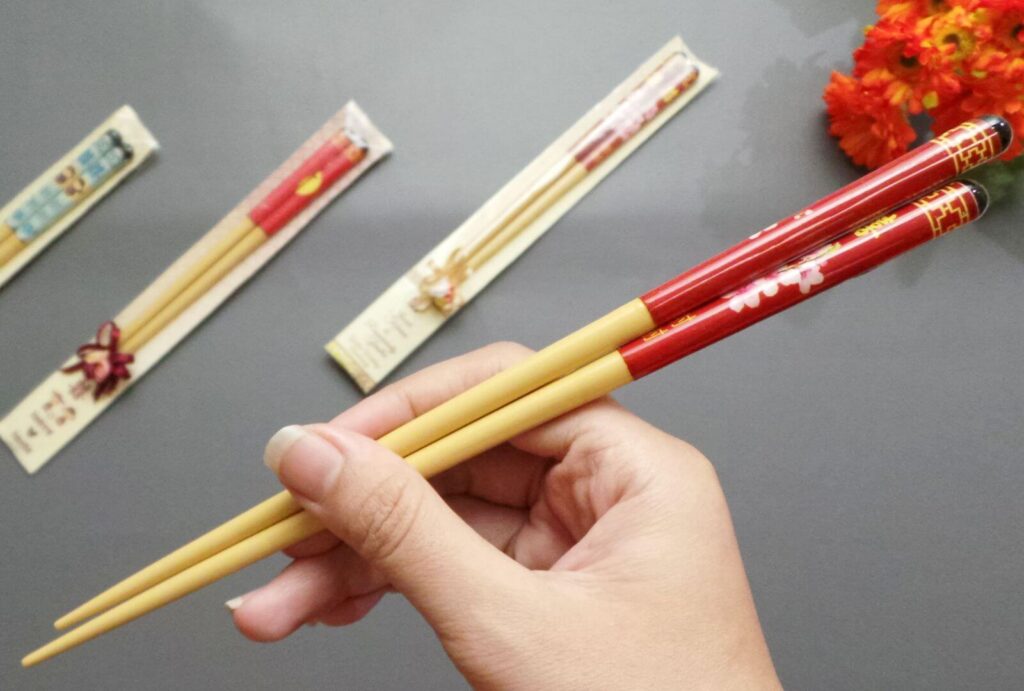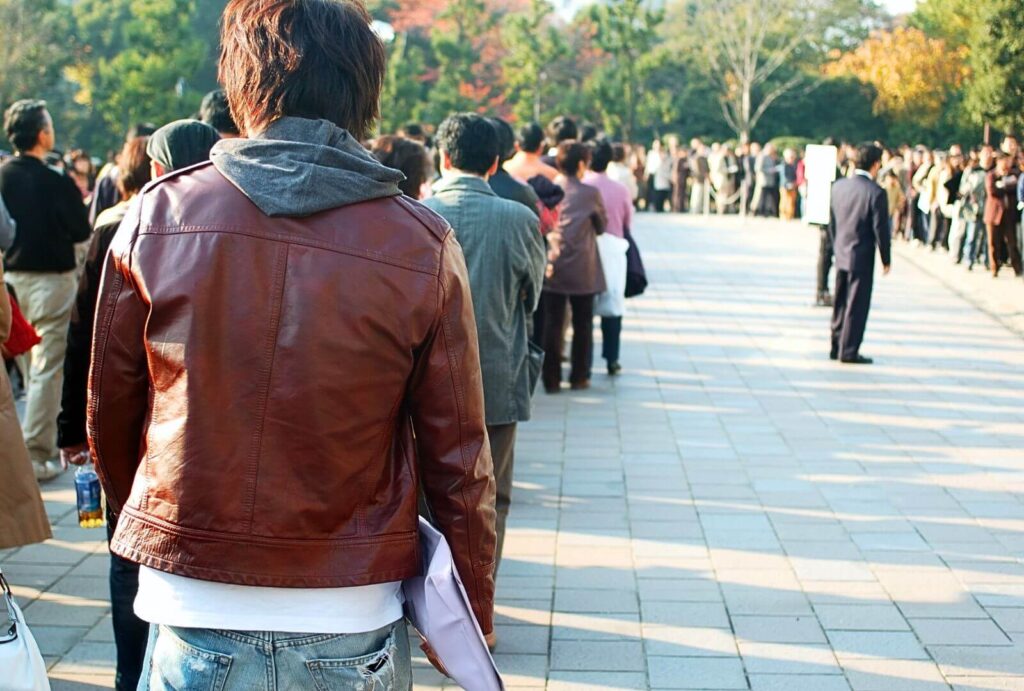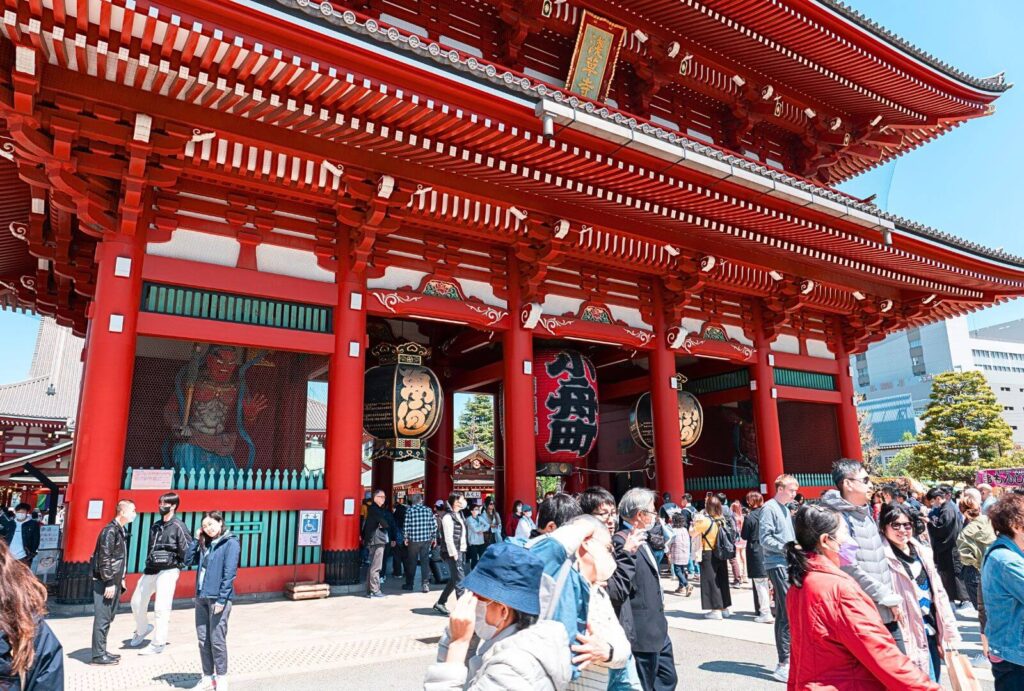Japan is a land of rich cultural traditions, where etiquette plays a crucial role in daily interactions. Whether you’re savoring local delicacies, navigating bustling streets, or visiting historic temples, understanding and respecting Japanese etiquette is key to a harmonious and enjoyable experience. In this comprehensive guide, we’ll explore various aspects of Japanese etiquette, from dining customs to public behavior, offering insights and tips to help you navigate with confidence and grace.

Food Etiquette
Exploring Local Flavors: One of the joys of traveling in Japan is the opportunity to indulge in the diverse and delicious array of local cuisine. From sushi and sashimi to ramen and tempura, each dish tells a story of tradition and craftsmanship. Embrace the culinary adventure by sampling regional specialties and savoring the unique flavors that Japan has to offer.
Don’t Be Afraid to Slurp: When it comes to enjoying noodles in Japan, don’t hesitate to slurp! Far from being rude, slurping is considered a sign of appreciation for the chef’s skill and the deliciousness of the dish. So, embrace the sound of slurping as you enjoy your ramen or soba noodles, and join in the culinary symphony with gusto.
Do Practice Your Chopstick Skills: Chopsticks are the primary utensil for dining in Japan, and mastering their use is essential for enjoying meals with ease and grace. Practice holding chopsticks correctly and picking up food items with precision. Remember not to stab or spear your food, and avoid crossing your chopsticks, as these gestures are considered impolite.
Do Not Tip the Servers: Unlike in many Western countries, tipping is not customary in Japan. In fact, it may be considered rude or awkward to offer a tip to servers at restaurants. Instead, show appreciation for excellent service by saying “arigatou gozaimasu” (thank you very much) or leaving a polite compliment on the way out.

Street Etiquette
Avoid Eating on the Go: While it may be common in some cultures to eat while walking, it’s generally frowned upon in Japan. Instead, take the time to sit down and enjoy your meal or snack in a designated area. Not only does this show respect for the food and your surroundings, but it also allows you to fully appreciate the flavors and textures of your meal.
Dispose of Trash Thoughtfully: Keeping Japan clean and beautiful is a shared responsibility, and disposing of trash thoughtfully is an essential part of this effort. Carry a small bag for trash and hold onto it until you find a proper disposal bin. Be sure to separate recyclables from non-recyclable waste and follow any posted instructions for sorting trash.
Refrain from Counting Your Change in Public: When making purchases, avoid counting your change in public. Instead, place your payment on the tray provided and trust that you’ve received the correct amount. This gesture demonstrates trust and respect for the vendor and helps maintain a smooth and efficient transaction process.
Respect Geishas and Maiko: Geishas and maiko (apprentice geishas) are symbols of grace, beauty, and traditional Japanese culture. If you encounter them during your travels, admire them from a distance and refrain from approaching them for photographs without permission. Show respect for their profession and cultural significance by observing them with reverence.
Avoid Blowing Your Nose in Public: Blowing your nose in public is considered unsanitary and impolite in Japanese culture. If you need to tend to your nasal needs, do so discreetly in a restroom or other private area. Carrying tissues or handkerchiefs with you is always a good idea to handle such situations discreetly.
Navigate Escalators with Ease: In Japan, escalator etiquette is observed to maintain smooth and efficient traffic flow. Stand on the left side of escalators to allow space for those who wish to pass on the right. Whether you’re ascending or descending, following this simple rule helps ensure a harmonious commute for everyone.
Mind Your Volume: Whether you’re riding public transport or walking through crowded streets, keeping noise levels down is essential for maintaining a peaceful atmosphere. Avoid speaking loudly, playing music at high volumes, or engaging in disruptive behavior that may disturb others.
Respect Indoor Spaces: When entering indoor spaces such as homes, temples, or traditional ryokan inns, it’s customary to remove your shoes at the entrance. This practice helps keep indoor areas clean and maintains a sense of comfort and hygiene. Be sure to follow this tradition and take off your shoes before stepping inside.

Public Etiquette
Don’t Be Afraid to Use “Sumimasen” (Excuse Me): “Sumimasen” is a versatile Japanese phrase that can be used to get someone’s attention, apologize, or express gratitude. Don’t hesitate to use it in various situations, such as when you need to pass through a crowded area or when seeking assistance from someone.
Do Say “Arigatou” (Thank You): Expressing gratitude is an essential part of Japanese culture, and saying “arigatou” (thank you) is a simple yet meaningful way to show appreciation. Whether you’re receiving assistance from a stranger or enjoying a meal at a restaurant, don’t forget to say “arigatou” to express your thanks.
Keeping Noise Levels Down: Whether you’re traveling on public transport or attending a public event, keeping noise levels down is essential for maintaining a respectful and comfortable environment for everyone. Avoid speaking loudly, playing music without headphones, or engaging in disruptive behavior that may disturb others.
Do Queue Politely: When waiting in line for public transport, purchasing tickets, or entering attractions, be sure to queue politely and wait your turn patiently. Avoid cutting in line or pushing ahead of others, as this can disrupt the orderly flow and cause inconvenience to those around you.
Dispose of Waste Properly: Keeping Japan clean and beautiful is a shared responsibility, and disposing of waste properly is essential for maintaining a clean and orderly environment. Be sure to use designated trash bins for disposing of your waste and follow any posted instructions for sorting recyclables.
Offering Seats to Elderly or Disabled: Offering seats to elderly or disabled individuals is a common courtesy that demonstrates respect and consideration for others. If you’re traveling on public transport and notice someone who may need a seat, be proactive in offering yours to them.
Following Traffic Rules: Whether you’re walking, cycling, or driving in Japan, following traffic rules is essential for safety and order on the roads. Observe traffic signals, crosswalk markings, and lane directions, and always yield to pedestrians and cyclists when necessary.
Place Your Payment on the Provided Tray: When making purchases at stores or restaurants, place your payment on the tray provided rather than handing it directly to the cashier. This practice is considered polite and helps minimize direct contact between individuals.

Restroom Etiquette
Cleanliness is Key: In Japan, cleanliness is paramount, especially when it comes to public restrooms. Take care to keep the restroom clean during and after use by disposing of trash properly, avoiding splashing water, and flushing the toilet as needed.
Privacy is Paramount: Respect for privacy is highly valued in Japanese culture, and this extends to public restrooms as well. When using a restroom stall, be sure to close the door completely and lock it if available to ensure privacy for yourself and others.
Proper Toilet Use: Familiarize yourself with the proper use of Japanese toilets, which may include features such as bidet sprays, heated seats, and sound masking options. Use these features responsibly and clean up after yourself to maintain hygiene and comfort for the next user.
Respect Accessibility: Many public restrooms in Japan are equipped with facilities for individuals with disabilities, such as accessible stalls, handrails, and larger spaces for wheelchair users. Be mindful of these facilities and avoid using them unless necessary to ensure equal access for all.
Keep Conversation to a Minimum: While it’s common to engage in conversation in some cultures, Japanese restroom etiquette typically discourages excessive talking or noise. Maintain a quiet and respectful atmosphere inside the restroom, and avoid engaging in loud or disruptive behavior that may disturb others.
Leave No Trace: After using a public restroom, take a moment to ensure that you haven’t left behind any personal belongings or trash. Check for any items you may have placed on hooks or shelves and gather them before leaving to ensure a clean and tidy restroom environment for the next user.

Respect for Tradition and Authority
Observing Customs at Temples and Shrines: When visiting temples and shrines in Japan, it’s essential to observe the customs and traditions associated with these sacred sites. Remove your shoes before entering temple buildings, bow respectfully when approaching altars or statues, and avoid disruptive behavior such as loud talking or photography in restricted areas.
Respecting Personal Space: Personal space is highly valued in Japanese culture, and it’s essential to respect the boundaries of others. Avoid standing too close to strangers or engaging in physical contact unless invited to do so. When interacting with others, maintain a comfortable distance and be mindful of nonverbal cues that indicate whether someone wants to engage in conversation or prefers privacy.
Following Dress Codes: When visiting certain establishments or attending formal events in Japan, it’s important to adhere to dress codes and guidelines regarding appropriate attire. Whether it’s covering up tattoos at hot springs or wearing conservative clothing at religious sites, respect the rules and customs of the place you’re visiting.
Observing Silence: Silence is often valued in Japanese culture as a sign of respect and contemplation. Whether you’re visiting a temple, attending a ceremony, or riding public transport, be mindful of maintaining a quiet and respectful atmosphere. Avoid speaking loudly or engaging in noisy behavior that may disrupt others.
Extra Japan Travel Tips
Learn Useful Japanese Phrases: Enhance your travel experience in Japan by learning some basic Japanese phrases. Whether it’s ordering food at a restaurant, asking for directions, or greeting locals, knowing a few key phrases can help you navigate with confidence and connect with people on a deeper level.
Understand Bowing Customs: Bowing is a common form of greeting and showing respect in Japan. Familiarize yourself with the different types of bows and when to use them to navigate social interactions with ease. Whether it’s a casual nod of the head or a deep bow of respect, understanding bowing customs will help you communicate effectively and respectfully with others.
Plan Ahead for Attractions: Beat the crowds and make the most of your time in Japan by planning ahead for major attractions. Purchase tickets in advance whenever possible to skip the lines and secure your spot at popular sites. Whether you’re visiting historic temples, bustling markets, or world-class museums, planning ahead will ensure a smooth and enjoyable experience.
In conclusion, mastering Japanese etiquette is essential for travelers who wish to explore the rich cultural heritage and traditions of Japan. By understanding and respecting the customs and behaviors outlined in this guide, you’ll not only enhance your travel experience but also forge meaningful connections with the people and culture of Japan. So, embrace the spirit of politeness and respect as you embark on your journey through this captivating country, and let the warmth and hospitality of Japan welcome you with open arms. Happy travels!

